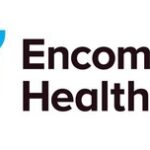 It’s Medicare open enrollment season, which means you may start getting a lot of questions from patients and their families about what Medicare prescription drug plan is right for them. Here’s what you need to know to help your patients make the best personal choice.
It’s Medicare open enrollment season, which means you may start getting a lot of questions from patients and their families about what Medicare prescription drug plan is right for them. Here’s what you need to know to help your patients make the best personal choice.From October 15 through December 7, Medicare beneficiaries can enroll in or change their Medicare Advantage plan or change or add a Medicare prescription drug plan. For most beneficiaries, this is the only time they have the option to enroll or change their plan until fall 2013, so it’s important for them to fully consider their options.
Medicare prescription drug plans are always administered by private insurance companies, and there are two types of plans that offer prescription drug coverage: the Medicare Part D prescription drug plans and Medicare Advantage plans.
Medicare prescription drug plans, or PDPs, provide prescription drug coverage to traditional Medicare plans, to some private fee-for-service plans, and to Medicare medical savings account plans. PDPs are separate from a beneficiary’s Medicare Part A and B, which means they can be enrolled in traditional Medicare while also being enrolled in a PDP.
Beneficiaries may also consider Medicare Advantage plans, which are typically an HMO or a PPO, and often include prescription drug coverage. Medicare Advantage (MA) plans are only available to beneficiaries who have Medicare Part A and Part B. Members enrolled in MA plans cannot be enrolled in a PDP, and should they join an MA plan, their PDP will be automatically canceled.
Before they make any decisions, Medicare patients and their families and loved ones should assess their current situation. This includes compiling a list of all the beneficiary’s current prescriptions and adding up the monthly cost of those medications, as well as the amount of their current premiums if they are enrolled in an existing plan.
To aid in the decision-making, Medicare beneficiaries have tools at their disposal enabling them to find information about the Medicare Advantage plans and stand-alone PDPs that may be right for them. These tools include Medicare’s website at www.medicare.gov and its online “Medicare Plan Finder” tool, as well as the 1-800-MEDICARE toll-free hotline. These resources are available in English and Spanish.
Before going online or calling Medicare, beneficiaries should have basic information on hand, such as their zip code and the list of medications they take, so they can quickly and easily identify and compare plans available in their area. To help beneficiaries decide, Medicare also provides them with the ability to compare co-pays and monthly premium costs, and to identify pharmacy locations in their local area that are in the available plans’ preferred networks.
Your patients can also work with you to determine whether there are alternative prescription options, such as available generic medications, that would enable them to join the plan they prefer, even if it doesn’t carry every one of their current prescriptions.
Some plans also offer 90-day drug supplies with lower co-pays through a local pharmacy, combining the long-term supplies typically administered by mail order programs with the traditional face-to-face interaction with a local pharmacist some beneficiaries prefer.
And finally, it’s important to note that Medicare beneficiaries may be confused about their overall Medicare benefits and whether anything has changed as a result of the health reform law. The only current change resulting from the health reform law is that beneficiaries will have gradually lower out-of-pocket costs when they are enrolled in a Medicare Part D plan and reach the coverage gap, also known as the “doughnut hole.” Beneficiaries are entitled to a 52.5 percent discount on brand-name drugs and 21 percent discount on generics in 2013. It is important for beneficiaries to understand the details of a particular plan and the drugs they take to decide whether they should choose a plan that offers coverage in the doughnut hole.
Choosing a Medicare Part D drug plan is an important decision for those on Medicare and it is critical that they work with their doctors and families and loved ones to make a decision that is right for them. For more information, visit www.medicare.gov or call 1-800-MEDICARE.

























